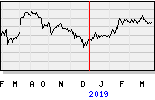
VC-funded developer of green chemicals from genetically modified organisms finds a new home.
Eric Wesoff January 23, 2014
Renewable Energy Group (REGI) acquired renewable chemical technology company LS9 for what could amount to $61.5 million in cash and stock.
Renewable Energy Group is the largest biodiesel producer in the U.S. and is greatly dependent on the Renewable Fuel Standard, a biomass-based diesel mandate. REGI went public in 2012, and according to its IPO filing, "Our strategy is to optimize and grow our core biodiesel business, to diversify into renewable chemicals and additional advanced biofuels." REGI grew by acquiring smaller regional biofuel processors and now runs six biodiesel plants, with a total nameplate production capacity of 257 million gallons per year. Feedstocks at REGI include inedible animal fat, used cooking oil and inedible corn oil.
LS9 uses genetically modified E. coli to produce a variety of green chemical alternates to petroleum-derived chemicals "for large, diverse markets such as detergents and personal care, as well as renewable fuels," according to a release, which added, "LS9 is a cornerstone investment for REG Life Sciences, which also plans to develop adjacent and complementary fermentation technologies."
LS9's initial chemical products are a group of fatty alcohol and specialty esters, according to its website. In an earlier report, we covered a team of LS9 scientists that had identified genes that, when expressed in E. coli, produce alkanes, the hydrocarbons that make up gasoline, diesel and jet fuel. This discovery is the first example of a single-step conversion of sugar to fuel‐grade alkanes by a "designer" microorganism, according to the company.
A source close to the deal said that LS9 was "underhyped" compared to the other entrants in the biochem filed, adding that the firm had a flexible platform that had been focused on chemicals rather than fuel for a long time. The source viewed the deal as good for REGI, which needs to diversify out of first-generation biofuels, and good for LS9, which gets access to REGI's balance sheet and supply channels.
The acquisition was not that good for the VC investors in LS9.
LS9 was founded in 2005 and has received more than $75 million in funding from Chevron Technology Ventures, Flagship Ventures, Khosla Ventures, and Lightspeed Venture Partners. (Peter Nieh at Lightspeed gets to record another venture exit; last week it was Nest.)
In the last decade, a crowd of next-generation biofuel firms including Algenol, Amyris, Aurora, Bard, Cobalt, Codexis, Gevo, Joule, Qteros, Sapphire Energy, Solazyme, Synthetic Genomics, Terrabon, UOP, and Virent promised to coax fuel from bacteria, algae, or by other means. Most of the firms have had to pivot away from fuels to focus on chemicals, catalysts, or creatures. Most of the firms that made it through the IPO window remain thinly traded development-stage companies with low visibility into profitability.
lees elders meer op
http://www.greentechmedia.com/articles/read/REG-Acquires-LS9-Green-Biochemicals-Firm-For-61M
Mr. Tjerk de Ruiter (54) is Chief Executive Officer and President of LS9, Inc., an industrial biotechnology company based in San Francisco USA. Before joining Corbion Mr. De Ruiter successfully finalized the sale of LS9 to US biodiesel company, Renewable Energy Group (REG).
Per mei bij Corbion, dus wat brengt hij mee in zijn "rugzak"?
Is hij door een overnemende partij geselecteerd om bij Corbion zijn kennis en vaardigheden in te zetten en zo de overname al in te zetten?
Venture backed biofuel startup LS9 is not shutting down, despite a report, but has changed up its CEO and restructured in the fourth quarter of 2012. It’s a difficult time for biofuel companies, given some VCs have been slowing backing out of greentech investing.
Venture capital-backed startup LS9 has brought on a new CEO, Tjerk de Ruiter, who previously led biotech company Genencor, now owned by DuPont. Ruiter has been Chairman of the Board of LS9 since August 2012, and LS9′s former CEO, Ed Dineen, will step down, but will remain on the company’s board, says the company in a release Wednesday afternoon.
An LS9 spokesperson, as well as company investors, told me on Wednesday that the company is not shutting down. An article in Biofuels Digest on Wednesday reported that LS9 has been struggling, would soon see its staff disperse and could shut down. That article has now been changed to reflect the switch in leadership and de-emphasize the previous assertion that it could shut down.
No doubt it’s a difficult environment for biofuel startups right now. Finding venture capitalists to put more money into capital intensive biofuel production was hard in 2012, and will likely be equally hard in 2013.
Ls9 restructured its business in the fourth quarter of 2012, which led to a reduction in staff, said a company spokesperson. But the company is moving forward with its current size, says the spokesperson. The company would not release the number of its employees or the amount of staff reduced. LS9 started up a demonstration facility in Florida in late 2012, and opened an office in Sao Paulo, Brazil in the Summer of 2011.
LS9 uses a genetically modified version of e.coli bacteria to make diesel and other green chemicals and fuels. LS9 has raised at least $75 million from venture capitalists including Flagship Ventures, Khosla Ventures, Lightspeed Ventures, Chevron Technology Ventures, and BlackRock.
